For the public
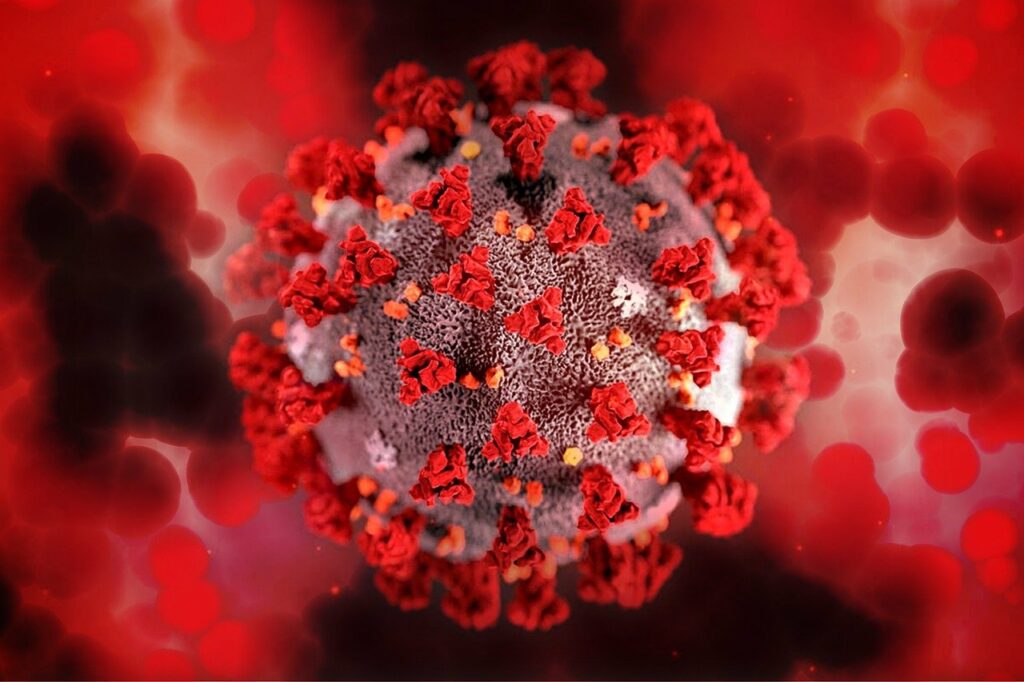
If you have suspected or confirmed coronavirus and have been admitted to Cambridge University Hospitals, you may be asked to consider joining the new NIHR COVID-19 BioResource, which is part of the NIHR BioResource.
The NIHR BioResource is a resource of more than 150,000 volunteers from around the country who are willing to participate in medical research. To do this they provide information about their health and lifestyle, and a sample of blood or saliva that can be studied in the laboratory, including for genetic analysis.
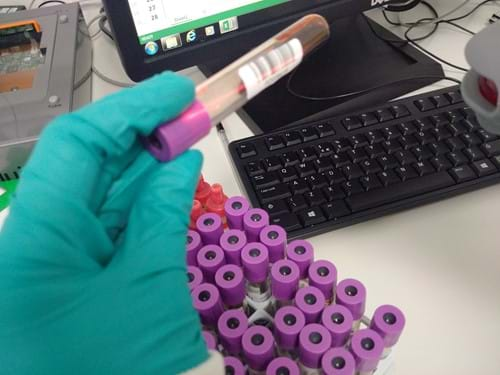
The information and samples we collect can help us understand more about health and disease, and also allow us to let volunteers know about research studies that they may be suitable for.
This provides an opportunity to take part in research, but there is absolutely no obligation to do so. The NIHR BioResource is already helping us understand and better manage many common and rare diseases
To support research in the current coronavirus pandemic we have also created a BioResource COVID-19 as part of the NIHR BioResource. This resource will enable sample and data-based studies of the health impact of COVID-19, and offer the opportunity for participants to be involved in future COVID-19-related research studies.
What will people joining the NIHR COVID-19 BioResource study be asked to do?
When patients are admitted to participating hospitals with suspected coronavirus infection, they will be asked if they are willing to take part in this study. Those who consent will sign a consent form and specially trained research nurses will collect samples to use in the study.
The samples collected will be nose and throat swabs (which are needed for diagnosis anyway) and a blood sample. They will also be asked some questions about their mental health and symptoms and to allow researchers access to their healthcare records. During their hospital stay, they may be asked for more blood samples when blood is being taken for normal clinical care.
Once they have recovered, they may be asked if they would be willing to take part in further research to help researchers understand more about the causes of severe COVID-19. There is no obligation to take part in these further studies.
I’ve had symptoms of coronavirus (or had a positive test outside of a hospital setting) and would like to be able to participate. Can I join?
At the moment we don’t have safe ways of collecting samples from non-hospital settings or enough diagnostic tests to be able to confirm self-diagnosed cases. Once our testing capability is improved and travelling restrictions are relaxed, we hope to be able to invite participants to the NIHR COVID-19 BioResource who are having, or had, milder symptoms and recovered at home.
Until then, people who are interested in taking part in research are invited to join the NIHR BioResource where you may be able to contribute to COVID-19 research in other ways – for example, by completion of questionnaires. You can find further opportunities to get involved in COVID-19 research on the NIHR’s Be Part of Research website.
People that have not had symptoms of the virus are also very welcome to join the NIHR BioResource to take part in research studies.
What is the NIHR BioResource and how do I join?
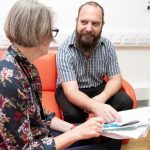
The NIHR BioResource is made up from volunteers, with and without health conditions, who are willing to be invited to participate in research studies and clinical trials.
Participants who have given their consent provide a biological sample (usually a blood sample), answer a short questionnaire about their health and lifestyle and allow researchers to access their healthcare records. At present, it is possible to join the NIHR BioResource without providing a biological sample.
Collected biological samples are analysed to provide genetic and other information, which is securely stored. Researchers who are carrying out research studies and trials that need participants with particular symptoms or genes can then ask the NIHR BioResource team to invite matching BioResource participants to take part in their studies. BioResource participants are free to decide which (if any) studies they want to take part in.
There are 13 NIHR BioResource local centres throughout England, and they are located in Cambridge (headquarters), Birmingham, Exeter, Leeds, Leicester, London (at Barts, Guy’s and St Thomas’, Maudsley, Moorfields and UCLH), Manchester, Newcastle and Southampton. If you are interested in finding out more, please contact your local centre.
If you are interested in joining, or have any questions, please email: nbr@bioresource.nihr.ac.uk
What do you mean by ‘sample-based’ and ‘data-based’ studies?
The biological samples provided by participants are divided into smaller samples that can be used in different ways. Researchers can apply to the NIHR COVID-19 BioResource to use the biological samples collected and stored from BioResource COVID-19 participants for their research studies.
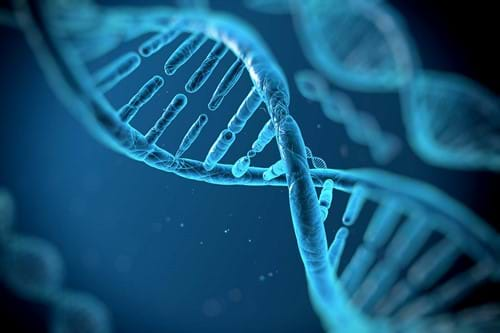
This kind of sample-based research may involve looking at the immune cell types present in the blood samples or looking for particular genes that might relate to how people react to COVID-19, for example, and doesn’t require further participation from the sample donors.
Part of the sample donated by NIHR BioResource COVID-19 participants is used for genomic analysis to identify genes of interest
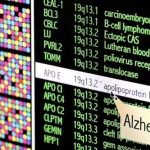
Data from COVID-19 BioResource participants is also available from their healthcare records, and the questionnaire or survey that they fill in when they join. Researchers applying to use the NIHR COVID-19 BioResource can apply to use this de-identified data to look for patterns in COVID-19 outcomes or severity. For example, using health care records and genomic analysis, researchers could look to see if severe COVID-19 infection was more common among people with a particular gene, or whether people with particular health conditions are more likely to be hospitalised with COVID-19. These kinds of studies that use only data are called ‘data studies’ or ‘data-based studies’.
What kind of studies are planned for the NIHR COVID-19 BioResource samples?
There are already several studies planned for the samples. Initially, the swab samples have been used to test a new, faster way of diagnosing COVID-19 on the hospital ward and for a test to find out whether people have had the virus or not (called an ‘antibody test’). Both of these studies will be crucial in helping the NHS through this pandemic, by helping to quickly separate infected and non-infected people in the emergency room, by helping to identify healthcare staff who have the virus but may be asymptomatic and by allowing staff who have had the virus and recovered back to work. These studies are led by Professor Ravindra Gupta, Professor of Clinical Microbiology at the University of Cambridge.

Professor Ken Smith, and other researchers at the Cambridge Institute of Therapeutic Immunology and Infectious Disease (CITIID) will be studying how each participant’s immune system has responded to the virus and whether particular types of immune ‘response’ are related to mild or severe symptoms. This information will help in the development of effective vaccines and may help doctors to identify in advance those who are more at risk of severe symptoms if they become infected.
Professor Ken Smith, NIHR Cambridge BRC
Theme Lead for Inflammation, Infection and Immunotherapeutics

Professor Ed Bullmore, and his team will be studying the mental health of staff and patients with COVID-19. NIHR COVID-19 BioResource participants will be invited to complete a mental health questionnaire when they join the study, and this will help researchers to track what happens with participant’s mental health as they recover and move forward. This effort is in collaboration with Professor Gerome Breen at the NIHR BioResource Centre Maudsley, King’s College London.
Professor Ed Bullmore, NIHR Cambridge BRC
Theme Lead for Mental Health
The really important thing about the NIHR COVID-19 BioResource though, is that it enables research studies that haven’t yet been thought of but need participants with COVID-19. If researchers identify an important link between infection and outcomes, they could apply to the NIHR BioResource to check for the link using the saved samples, data or by inviting the participants to participate in a new research study. The more people that participate in this study, the better that researchers will be able to understand and treat COVID-19.
Who will have access to my personal information and genetic data?

We use a process called ‘pseudo-anonymisation’ so that research staff who work with your samples cannot identify you. The database that holds the genetic and biological data is separate to the one that holds personal data. Access to both databases is restricted to trained staff at the NIHR BioResource.
The database that holds all personally identifiable information such as names, addresses and the answers provided in your questionnaire can only be accessed by the NIHR BioResource recruitment team who may contact you in the future about your participation in research studies.
The database that holds the genetic information is accessed by the research team and a limited number of the NIHR BioResource data services team only, who do not have access to the database that holds personal information. Your de-identified data will only be shared with approved COVID-19 research teams, with only the information necessary for research.
You can find more information about how the NIHR BioResource safeguards data here.
What if I change my mind about taking part?
Participants are free to withdraw from the NIHR BioResource at any time without giving a reason. Please contact us on 0800 090 22 33 or email nbr@bioresource.nihr.ac.uk with ‘withdraw from NIHR BioResource‘ in the subject line, include your name, address and date of birth in the email, and we will initiate the withdrawal process.
Who do I contact if I have questions or concerns?
If you have any questions or concerns about anything to do with the NIHR BioResource then you can call our Freephone number on: 0800 090 2233 Mon to Fri 9:00-17:00 or email us at nbr@bioresource.nihr.ac.uk. You may also be able to find an answer to your question in the NIHR BioResource’s Frequently Asked Questions page.
I have been invited to the COPING study, what is it?
This study is being run by King’s College London and the NIHR BioResource. The COPING study will assess the impact of the novel coronavirus (COVID-19) pandemic on mental, physical and neurological health. Researchers are interested in how different factors associated with the virus are affecting the population. Members of the NIHR BioResource, GLAD Study and EDGI are being invited to take part in this study.
If you have any questions or want further information on the study, you can contact the COPING Study team: COPINGstudy@kcl.ac.uk


